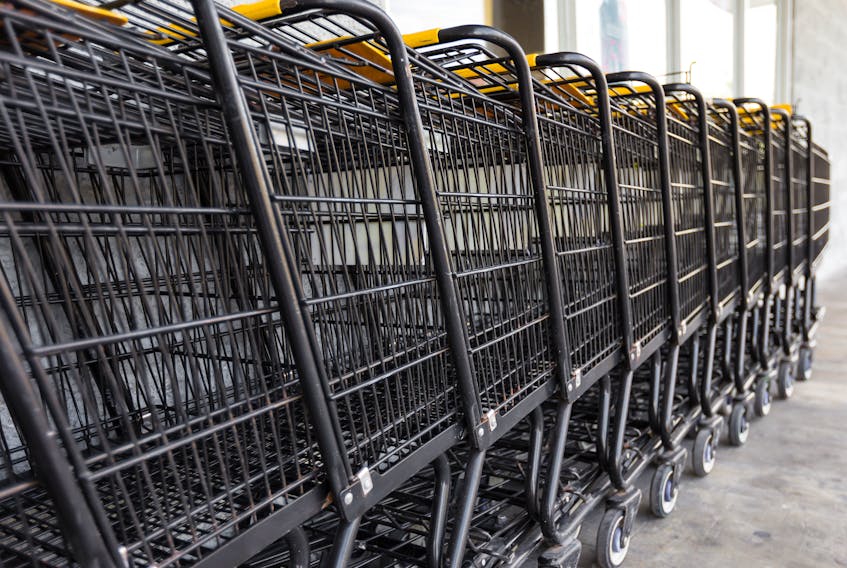Big change better come. When the COVID-19 pandemic is over, we better not revert to the Old World, and the old way of doing things.
When the coronavirus recedes, hopefully a few short months from now, so also should most of our old ideas about “the economy.”

The free-enterprise system, which is good, has evolved into corporatism, which is considerably less so. You may have heard concerns recently about the massive disparity in wealth that has emerged over the past couple of decades.
The COVID-19 pandemic is exposing the lies “the economy” is — was — based on.
For example, to cite an issue that has been in the news for the better part of the past year, prior to the COVID-19 pandemic, a $15-per-hour minimum wage would supposedly ruin the economy.
Mid-pandemic, various sectors of the economy are already pressuring the government to come up with billions for bailouts — the airlines, first, and coming next, the tourism industry, the oil industry and possibly even banks.
Post-pandemic, we can’t revert to the same old corporatism, where the rich become super-rich and everyone else struggles to pay the rent or mortgage.
It would be terrific to never again hear the once-common chorus pushing for austerity and government “belt-tightening.”
When the pandemic ends, each citizen will have to make an important decision: whether to accede to a return to the Old World, the old ways, the old corporatism, or, to quote Prime Minister Justin Trudeau, firmly declare, “Enough is enough.”
The federal government is spending tens of billions of dollars, as it should, to help workers and the self-employed who have lost jobs and/or income. It will also, as it should, spend billions to help numerous businesses stay afloat until this nightmare is over.
The Parliamentary Budget Office (PBO) estimates the governmental help that has been announced so far will increase the 2020-21 federal deficit to more than $112 billion.
Shockingly, horrifyingly, the PBO said the government will have to curtail spending after the pandemic.
Of course, the spending of public money on emergency assistance will end. But let’s not return to the predictable days of declaring almost all government expenditures wasteful and irresponsible.
The COVID-19 crisis should teach us once and for all what has been apparent all along: when the government needs money, it should take it from those who have it, not from those who don’t have it.
Should we, as cited so often in the past, cut health care? It accounts for huge expenditures (actually, transfers to the provinces) and, what the heck, we probably won’t have a pandemic again for another century. Do we still need all those nurses and hospital beds?
How about the perennial cutting favourite: education. It’s a big budgetary item. There are plenty of public dollars to be saved. But then we can be guaranteed that during the next pandemic, even more morons will proclaim, “But it’s no worse than the flu.”
Let’s take a novel idea away from this pandemic — let’s not, for once, balance the budget on the backs of the very people who needed government assistance during the crisis.
Citizens have to finally say no, enough is enough.
The COVID-19 crisis should teach us once and for all what has been apparent all along: when the government needs money, it should take it from those who have it, not from those who don’t have it.
Remember the supermarket workers. They are unrecognized heroes.
Nurses, paramedics, doctors and other health-care professionals are thanked with applause, cheers and banging pots for their heroics, quite rightly.
Lowly supermarket workers, on the other hand, were among those in the Old World who barely earned a living wage. Today, they are essential workers.
And brave, too. Online shopping for groceries has skyrocketed during the pandemic, as people want to avoid not only crowds, but places where a lot of other people have been, especially after scientists discovered the coronavirus can survive for hours in the air and for days on some surfaces.
And yet, the supermarket workers continue to go into one of the busiest and most necessary places left, and which others strive to avoid. Some St. John’s grocery stores are so overwhelmed with online orders that they have stopped deliveries.
When this all ends, the argument that supermarket workers — and millions of others — warrant low wages will be exposed as spurious.
On the contrary, supermarket workers’ current heroics prove “the economy” of the Old World was indeed a lie. Who’s essential now?
Brian Jones is a desk editor at The Telegram. He can be reached at [email protected].









